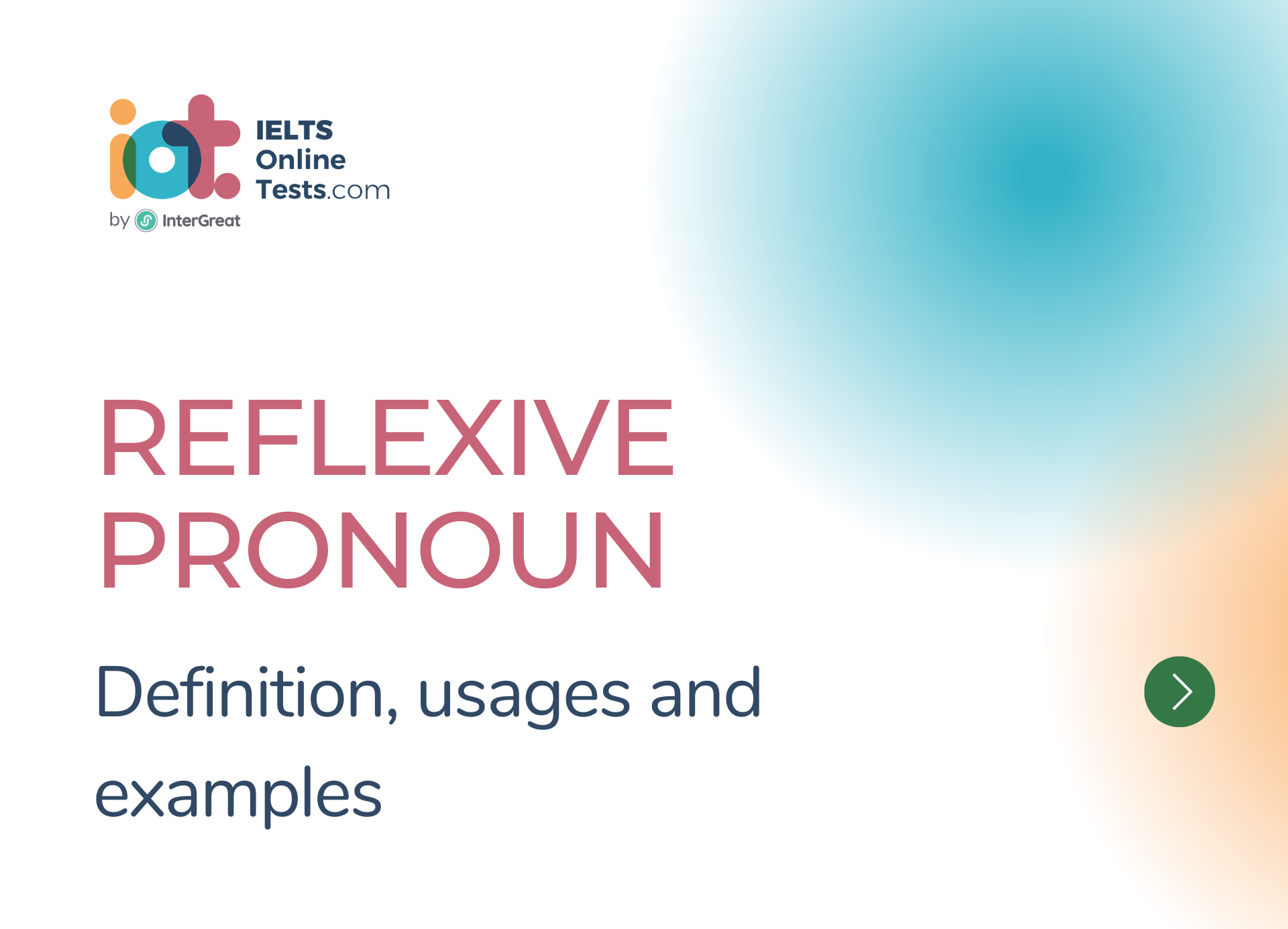
Reflexive pronoun definition and examples
Reflexive pronouns are a specific type of pronoun used when the subject of a sentence performs an action on itself. They are formed by adding the suffix "-self" (singular) or "-selves" (plural) to certain personal pronouns. Reflexive pronouns help emphasize that the subject is both performing and receiving the action of the verb.
Here are the reflexive pronouns in English:
- Singular: myself, yourself, himself, herself, itself
- Plural: ourselves, yourselves, themselves
Examples of reflexive pronouns in sentences:
- I taught myself how to play the piano.
- You should take care of yourself.
- He blamed himself for the mistake.
- She enjoyed herself at the party.
- The cat is grooming itself.
- We will cook for ourselves tonight.
- Did you buy the gifts for yourselves?
- They prepared the presentation themselves.
Reflexive pronouns are typically used when the subject and object of a sentence refer to the same person or thing, indicating an action performed by the subject onto itself. They are often used to express actions that involve self-care, self-reflection, or self-directed activities.
Be aware that reflexive pronouns are not necessary for all sentences, and their usage depends on the context. They are used when the action is specifically directed back to the subject.
Remember to use reflexive pronouns when appropriate to convey the intended meaning and to emphasize that the subject is both performing and receiving the action.




